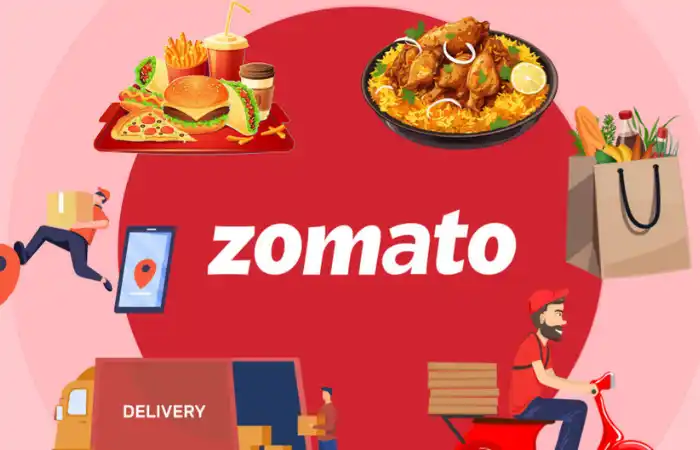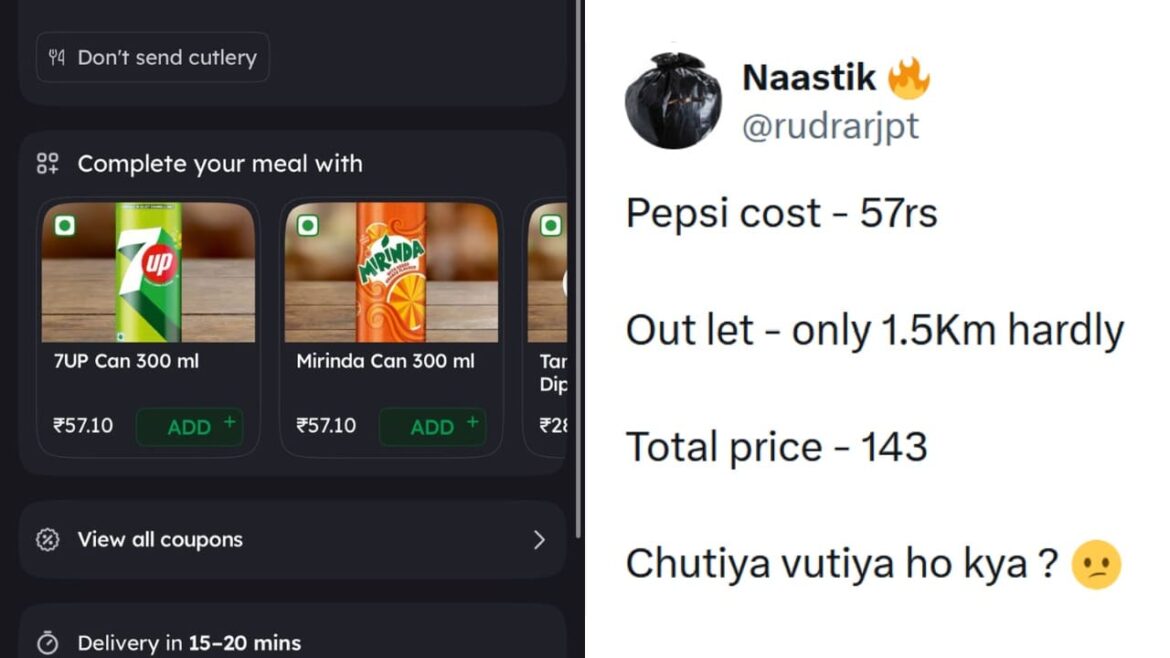A recent social media complaint has reignited the debate around hidden charges on food delivery platforms. A Zomato customer’s post about being charged ₹143 for a cold drink that had a marked price of ₹57 went viral, prompting the company to release a detailed explanation.
The Incident: ₹57 Cold Drink Turns Into ₹143 Order
A Zomato customer took to the social media platform X (formerly Twitter) to share a baffling experience. He had ordered a cold drink from a restaurant just 1.5 km away from his home. While the beverage itself had an MRP of ₹57, the final bill came to ₹143.79.
To support his claim, the user posted two screenshots:
- The actual MRP of the cold drink, ₹57.
- The final order bill, which included multiple extra charges.
What Made the Bill So Expensive?
The ₹57 drink ended up costing nearly 2.5x more due to the addition of various fees and charges. Here’s a breakdown of the charges added:
- Base price of drink: ₹57.14
- GST: (as applicable)
- Restaurant Charges: ₹43.65
- Delivery Partner Fee: ₹31
- Platform Fee: ₹10
- Feeding India Donation: ₹2
- Total Bill: ₹143.79
Customer Frustration and Online Buzz
The post quickly gained attention, with many users expressing frustration over the ever-increasing costs of using food delivery apps for even small orders. Some users pointed out that such pricing makes it difficult for people to justify using these platforms, especially when the actual product cost is low.
The incident fueled ongoing concerns about transparency in pricing, with users demanding clearer breakdowns and fewer hidden fees.

Zomato Responds to the Backlash
Zomato issued a detailed clarification through their support handle, Zomato Cares, explaining the logic behind each component of the bill. According to Zomato:
“Hi there, please note that GST is applicable as per government norms and restaurant confirmation; restaurant charges are decided solely by our restaurant partners; delivery fee helps ensure fair compensation for our delivery partners; platform fee enables us to provide you convenience and smooth app operations and donations are completely optional and are added only when the ‘Add’ button is tapped. Please feel free to DM us in case you have any additional queries!”
Who Decides the Final Price?
Zomato clarified that restaurant charges are determined by the restaurant partners themselves, not by Zomato. The delivery fee is charged to ensure fair pay for delivery agents, while the platform fee is for app maintenance and customer convenience. As for the donation, it is completely optional and is only added when users manually tap the “Add” button.

Past Criticism Over Hidden Charges
This isn’t the first time Zomato or other food aggregators have faced backlash over unclear pricing. In the past, customers have flagged:
- Higher prices on the app compared to physical restaurant menus
- Unexpected “platform fees” added to small orders
- Differences in taxes or delivery charges without proper justification
Several users on social media continue to express dissatisfaction with the app’s pricing model, stating that these charges are often not highlighted upfront, leading to confusion at checkout.
The Bigger Debate: Are Food Delivery Apps Becoming Too Costly?
As delivery apps continue to dominate the market, consumers and consumer rights activists are demanding greater transparency. Many argue that the current pricing models—laden with add-on charges—make affordability a concern, especially when ordering low-ticket items.
Final Thoughts
The cold drink incident has sparked a wider conversation about food delivery app pricing in India. While Zomato’s response clarifies how fees are structured, the question remains: Should small orders come with such a heavy cost burden?
As customer awareness grows, platforms may need to rethink how they communicate charges—ensuring that trust isn’t lost in the process of convenience.
